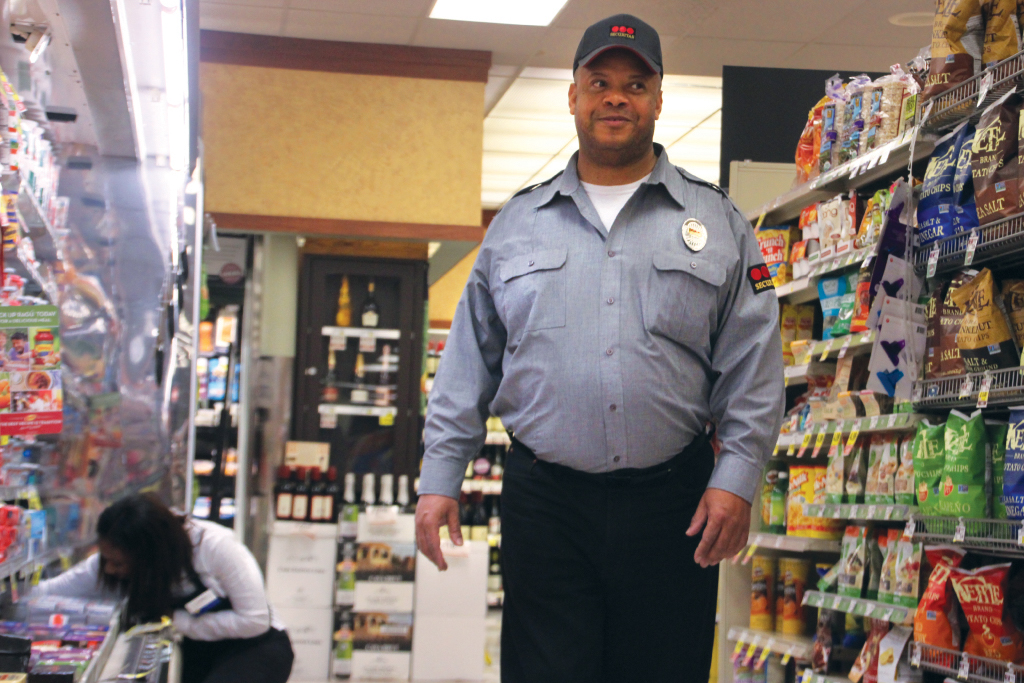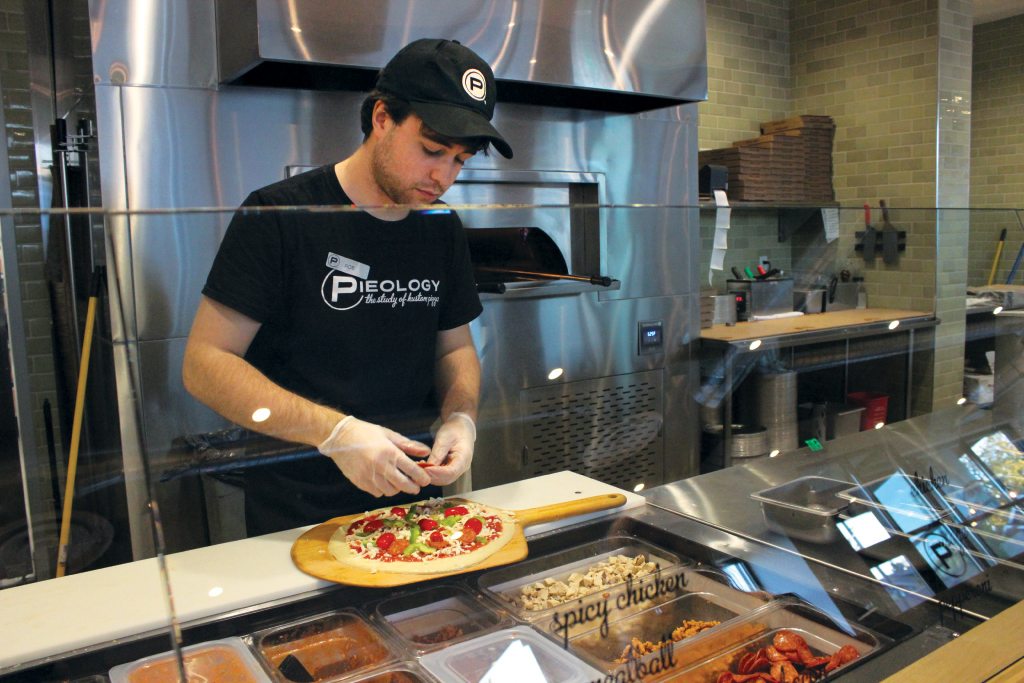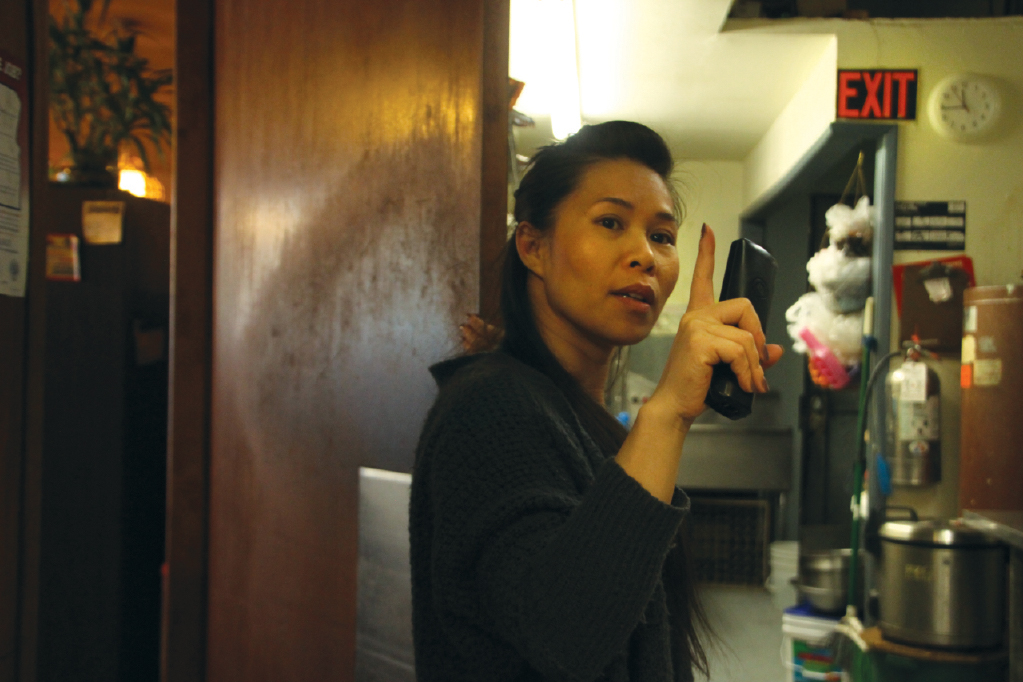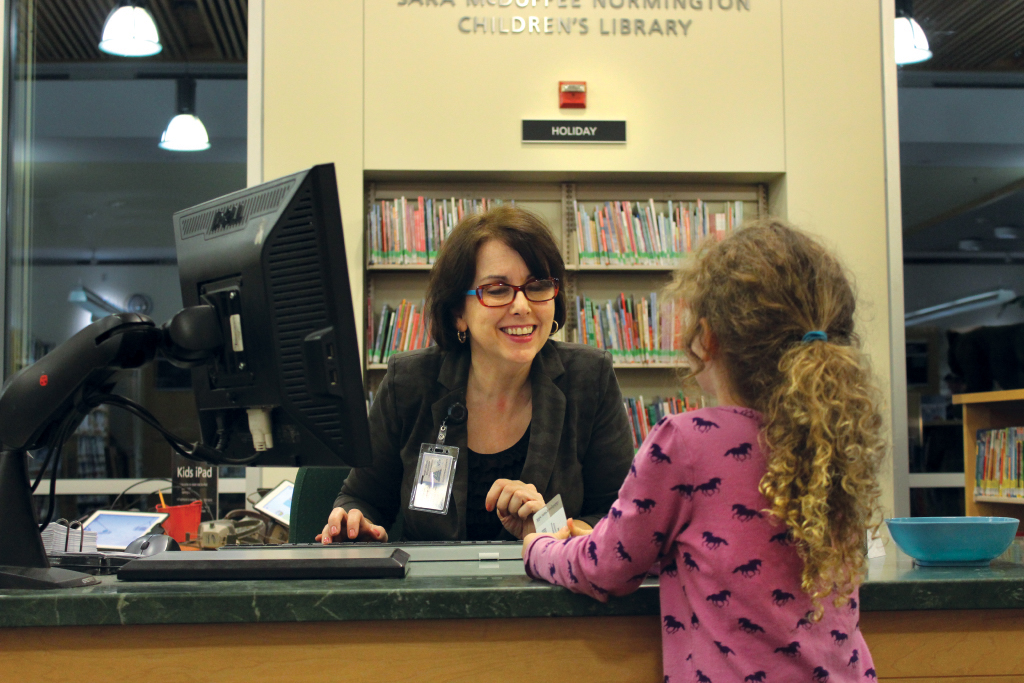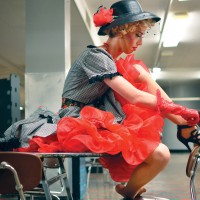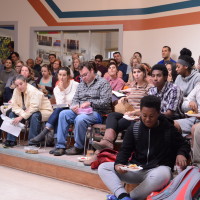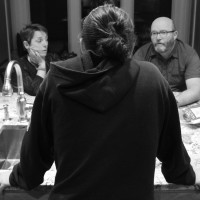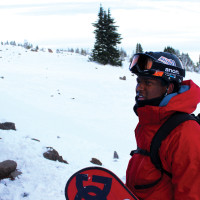Jeffrey Potter
Age: 56
Job: Security guard at Quality Food Center
When things didn’t go his way: “I kept telling myself, ‘Just be patient,’ because that was my main focus.”
When Jeffrey Potter moved to Portland in 2014, he had no job, no permanent housing and minimal savings.
But he didn’t let his unemployment get the best of him. By the start of 2015, he took a job with Securitas, an international security company for protective services. He was stationed at QFC in July.
What were you doing before this position?
My job was to teach soldiers how to survive if they were faced with a nuclear biological or chemical environment.
How did you get your current job?
The reason I got one in security was I looked at everything I could do. I figured there was no nuclear bomb around so I could cross that off the list. So what else can I do? Oh! Security.
What’s your interaction with Grant students like?
I might ask them before they go to the game whether they’re going to win and they say, “Ummm.” I say “No, that’s not the spirit. You’ve got to say ‘yes.’’’ They look at me like, “Yeah, right.” But you’ve got to pep yourself up. Don’t talk about, “Oh, we might.” It’s: “No, we’re going to win.”
What’s your work schedule?
When I’m coming to work, everybody is getting off. When I’m going to sleep, basically people are getting up to go to work. So my life is just a flip-flop.
What happened when you first came to Portland?
They put me on a grant program because I didn’t have a job…I was living in an apartment. I would get on the MAX and go eat with the homeless. Between lunch and dinner, I would be looking for employment. I was motivated by the fact that I’m a go-getter no matter what.
What was it like when the program stopped paying your rent?
A lot of people would’ve given up, thrown in the towel, probably freaked out. But I just don’t do that because I just believe. I’m a person that believes in God. If I doubt that, then I must not have the faith. I almost got kicked out. He (the landlord) put a notice on my door for me to have three days to get out and I still believed that it was going to come through, which it did. I got a check and I paid it.
What does a job mean to you?
A lot of people come up to me and say, “How’s it going?” I say, “I’ve got a job. I’m doing good.”You see, I value my job. I get here 30 minutes before I’m supposed to. I come every day. I don’t miss a day. And I do my job.
– Interview by Kali Rennaker,
Photo by Cassius Pettit
Rob Guzman
Age: 23
Job: Shift leader at Pieology Pizza in Grant Park Village
An impulsive move: “I grew up pretty quickly, like I wasn’t ready to grow up when I moved to Florida. But I put myself in that situation where it was like ‘time to grow up now.’”
A little over a year ago, Rob Guzman returned to Portland after living in Florida for five years. As a kid, his family moved around a lot, eventually coming to Oregon right before Guzman’s freshman year at West Linn High School.
It was a difficult move that left him bitter. The day after he graduated, he moved to Florida where his girlfriend, now fiancée, was living. “Looking back on it, it was a pretty stupid thing and I probably shouldn’t have done it,” he says. “But I’m glad I did.”
Guzman says that in his past two jobs, he didn’t have a lot of opportunities to interact with people.
How did you get the job?
My fiancée and I just wanted to live in the city…The day that we moved, we came in and got pizza and it was pretty good, and then they were doing a night where all the residents came in to get really cheap pizza. So we came in and everybody was just really nice and I liked the atmosphere and I needed a job.
What did you do before working at Pieology?
I was a medical assistant and after that I was in real estate. In the medical job, I was more telephone than in person so that was pretty negative. It’s really nice to be in a place where I can have that guest interaction.
Have you always wanted to work in the food industry?
I actually told myself I would never work in food. When I was first looking for a job, I refused to go to like fast food places. I never really thought I’d be in a food industry type job.
What’s your interaction with students at Grant like?
They are all really nice. It’s inconsistent. I mean, sometimes a lot of kids want pizza, sometimes nobody does. I’ve seen like 13 people come down the hill and I’ve talked to like someone else working with me like, “Alright, get ready” and then they all just like walk right past.
What are your plans?
To have this job here and then go back to school. But I’m doing way better here than I thought I was going to. I’m going to go back to school eventually. I want to do something in business marketing or social psychology, but I’m actually getting a lot of that experience here.
– Interview by Kali Rennaker and Molly Metz,
Photo by Molly Metz
Yen Do
Age: 39
Job: Manager of My Canh Restaurant
In her past:After fleeing a refugee camp in Hong Kong, half her family was forced to return to Vietnam to live.
Yen Do started working at My Canh, a Vietnamese restaurant in Northeast Portland’s Hollywood neighborhood, three years ago. But her ties date back further.
Do and her family fled Vietnam in 1989 for Hong Kong. They were forced into an internment camp once they arrived and stayed for four years.
She made it to Portland at 16 with only half the family members she started with; the rest were forced to return to Vietnam.
The first job her mother picked up in Portland was as a cook at My Canh. Today, her family runs the restaurant.
What’s it like working with your family?
It’s (a) good thing and bad thing, but mostly I’m really enjoying it. Most people, they don’t have that so sometimes it’s stressful. Nobody listens to anyone but most of the time we try to work it out.
What does family mean to you?
A lot…‘cause that’s what I have. That’s my culture. They say if you don’t have family, you cannot do anything. There’s nothing for you to look up to. It’s just not all about you. So it’s good to have family to look up to.
What do you enjoy about work?
I enjoy like socializing, customers. It is fast paced, you know. “Go, go, go, go.” That’s what I like.
How do you make people feel welcome?
Just positive attitude, that’s all we try to be. That’s the main thing in your life, just stay positive and everything will work out the way that you need.
Have customers ever complained about Grant students?
No, they never have…Most customers, they’re regulars so they understand.
Do you enjoy serving all these teenagers when they come at lunch?
Yeah, they’re pretty good. I was pretty impressed, you know. All of the kids in this neighborhood are really good.
What do you do outside of My Canh?
The important things right now are taking care of the kids and taking care of the business and not anything for fun right now. Just work, work, work.
How long do you think you’ll work here?
You never know the future. Life you cannot predict, so I don’t know. As long as I can. I try my best to make people happy and even myself, too. So we’ll see, you know. In the long term, I don’t know.
– Interview by Blu Midyett,
Photo by Cassius Pettit
MaryGrace McGovern
Age: 55
Job: Supervisor at Multnomah County’s Hollywood Library branch
In the past:McGovern worked as a hairdresser.
When MaryGrace McGovern was eight, her dad died and she turned to books to cope with the loss. McGovern’s desire for community and her connection with literature guided her to become a librarian.
She joined the staff as a supervisor at the Hollywood branch last year. Through interactions with patrons, supervising library staff and running outreach programs, McGovern works hard to make sure the library is supporting the surrounding community.
How did you get the job?
Before this, I was living in Northern California. The jobs kept shrinking and I knew that I was going to be laid off. There was a job here in Portland and I knew that the Multnomah County Library system had this fantastic reputation…I could just tell that (by) the way I was treated by the Human Resources Department and the way it was when I just met people in Portland. I was like, “This is my place.”
Why did you become a librarian?
I worked a long time as a hairdresser and I was grateful for it. But I was trained to look at improving the exterior part of people. There was a part of me that wanted to work at a job I felt had a different type of integrity, as well as my need to be educated. I like being a hairdresser, being able to talk to people and hear their stories. You kind of help people when you’re a hairdresser in other ways, just by conversation. So I could still keep that, like keep those relationships and build community. But then also my task in life was greater. I want to help people, but in a different way, and I was also intellectually curious. I felt like I could have both of those things happen at the library.
How did literature become a big part of your life?
My mom…was a single mom in a time where that wasn’t as common. So she didn’t have as much time to tell me stories. So like when I would meet somebody, I would want to know their family’s story and it’s like you can’t just keep asking people those questions. So I turned to books and things like that to help me understand life and people.
What’s your favorite thing about working at the library?
I really like the impact that we have in the community. But also the impact the community has on us to grow and change and develop, come up with new programs and new ideas and just to serve the creative and educational needs that we have right now.
– Interview by Callie Quinn-Ward and Molly Metz,
Photo by Molly Metz

